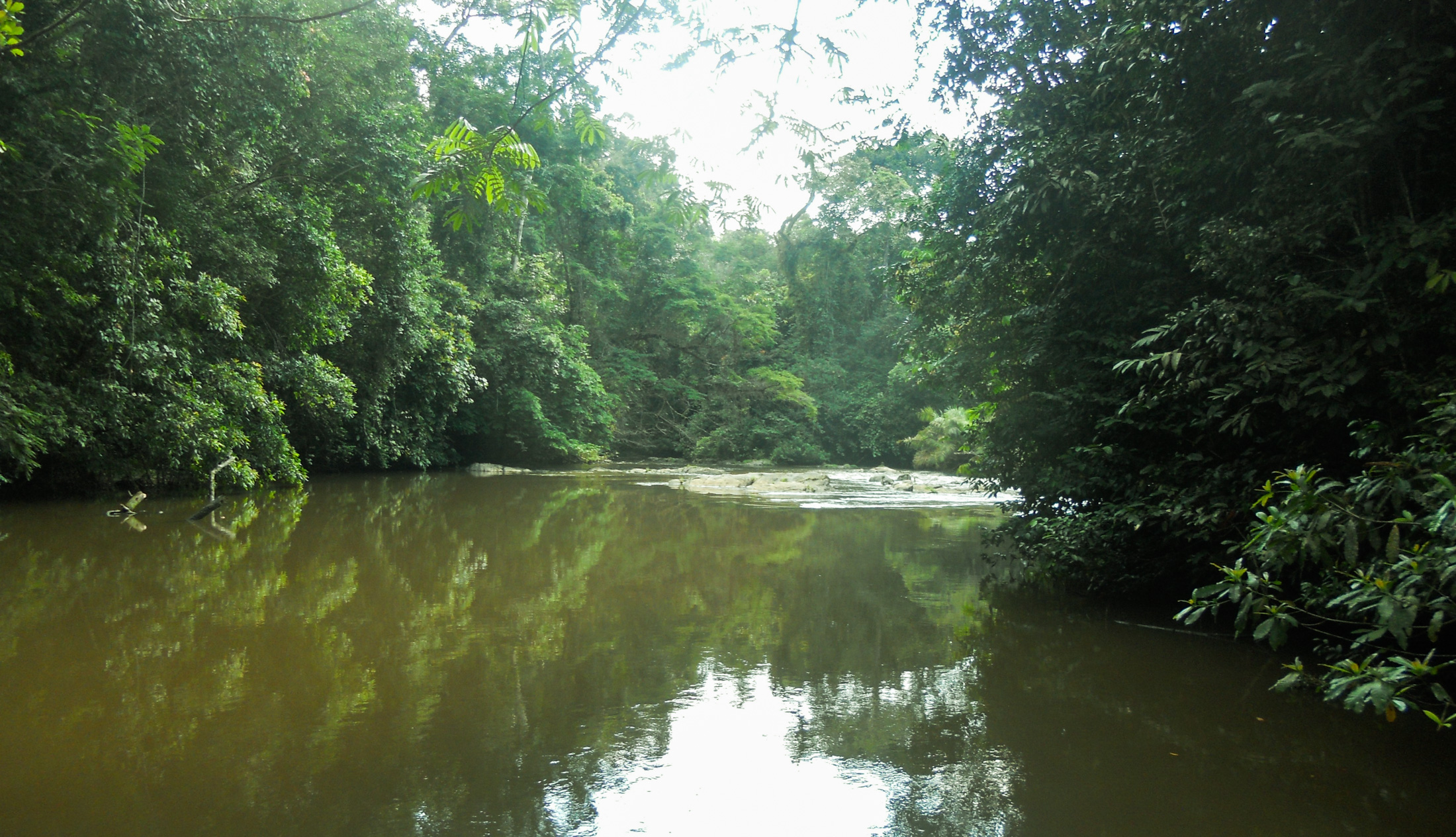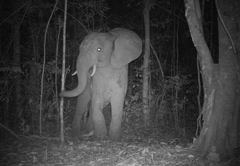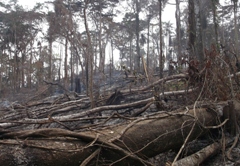

The Forest Elephants of the Central and West African Rainforests are the smaller relatives of the African Savanna Elephants. Long time considered as a subspecies of the latter, recent studies have shown that the DNA of Forest Elephants differs sufficiently from that of Savanna Elephants to be recognized as a separate, far-more-endangered species. Forest Elephants are shorter than their savanna cousins, sport a smoother skin and straighter tusks, and are particularly characterized by more rounded ears, which is also reflected by the scientific species name: Loxodonta cyclotis, as compared to the Savanna Elephant Loxodonta africana. Due to instable political situations in many of their range countries, as well as their elusiveness, Forest Elephants are less well-studied than Savanna Elephants. Most available data come from research projects in open clearings, called “Bais”, as for example in the Central African Republic. Adult Forest Elephants can weigh between 2,7 and 4,0 tons, reach a shoulder height of 2,10 m (cows) up to 2,40 m (bulls) and live up to 60-65 years. In the dry season they mainly feed on grass, bark and branches, while in the rainy season they are more specialized on fruits.
Forest Elephants play a significant ecological role in the maintenance of forest habitats and biodiversity protection by opening the understory, slowing down the closure of canopy gaps by bending trees, carrying seeds over long distances, creating a patchwork of forest types and influencing the structure of plant and animal communities. The survival of this “key” species is therefore considered of high priority for wildlife management authorities. However, the Forest Elephant is under threat, and thought to be undergoing a substantial decline as ivory smuggling, bushmeat trade and particularly habitat loss rapidly reduce and fragment populations. Human population growth and progressive economic development raise the pressure on natural areas from mining, logging and rapid transformation of land to agriculture.

West Africa has lost more than 90% of its elephant range during the 20th century, and today Forest Elephant populations are mostly small, fragmented and isolated. Human encroachment and, as a consequence, human-elephant conflicts are pervasive problems throughout the region. Hence, sustainable solutions are required to ensure the survival of the West African Forest Elephants as well as a peaceful coexistence between humans and wildlife.



